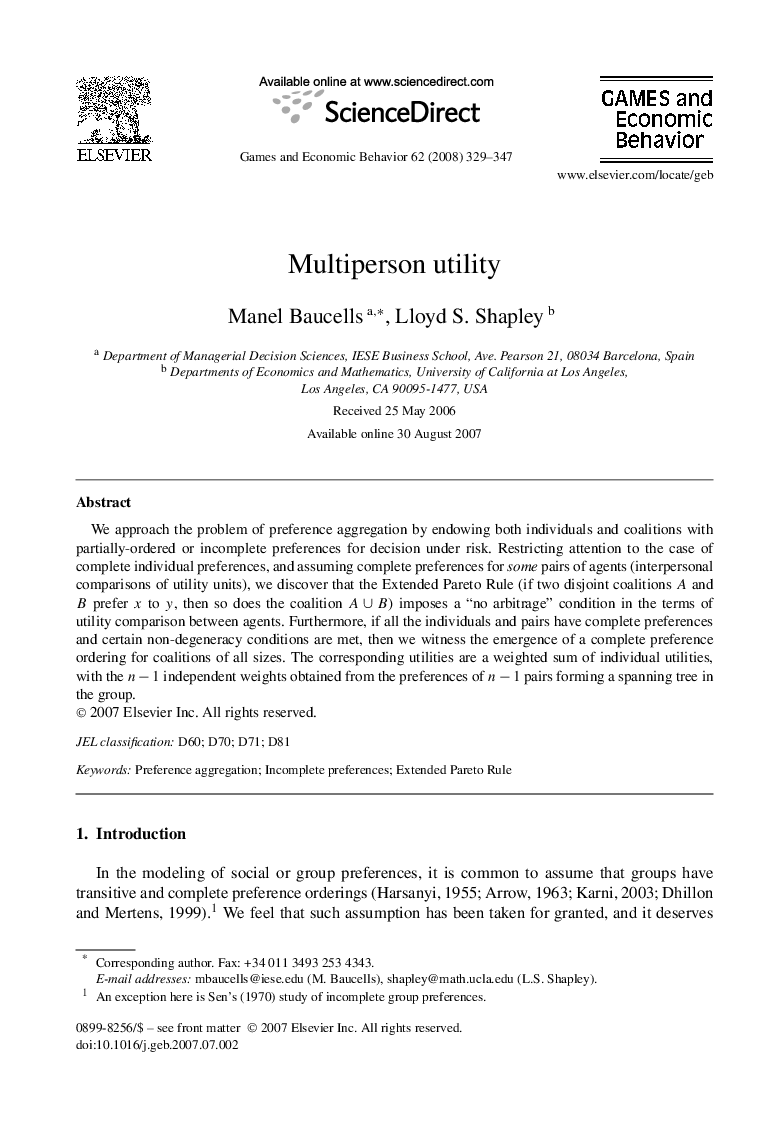| Article ID | Journal | Published Year | Pages | File Type |
|---|---|---|---|---|
| 5072710 | Games and Economic Behavior | 2008 | 19 Pages |
We approach the problem of preference aggregation by endowing both individuals and coalitions with partially-ordered or incomplete preferences for decision under risk. Restricting attention to the case of complete individual preferences, and assuming complete preferences for some pairs of agents (interpersonal comparisons of utility units), we discover that the Extended Pareto Rule (if two disjoint coalitions A and B prefer x to y, then so does the coalition AâªB) imposes a “no arbitrage” condition in the terms of utility comparison between agents. Furthermore, if all the individuals and pairs have complete preferences and certain non-degeneracy conditions are met, then we witness the emergence of a complete preference ordering for coalitions of all sizes. The corresponding utilities are a weighted sum of individual utilities, with the nâ1 independent weights obtained from the preferences of nâ1 pairs forming a spanning tree in the group.
